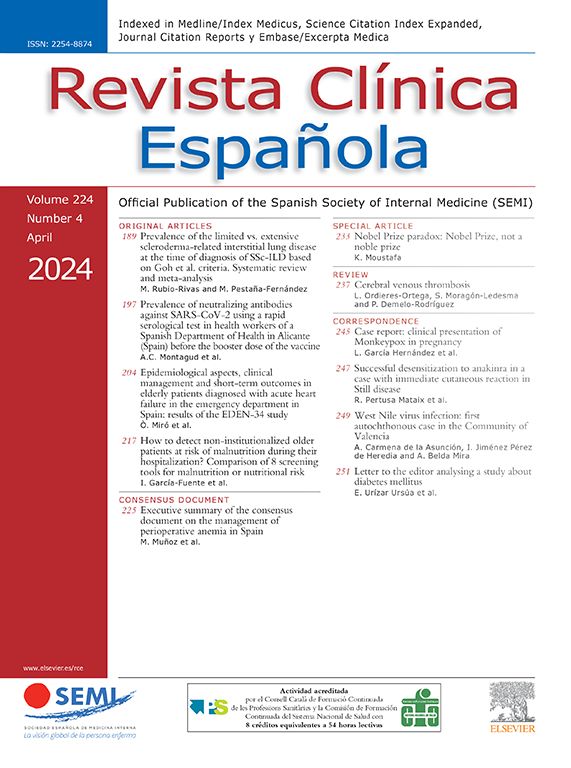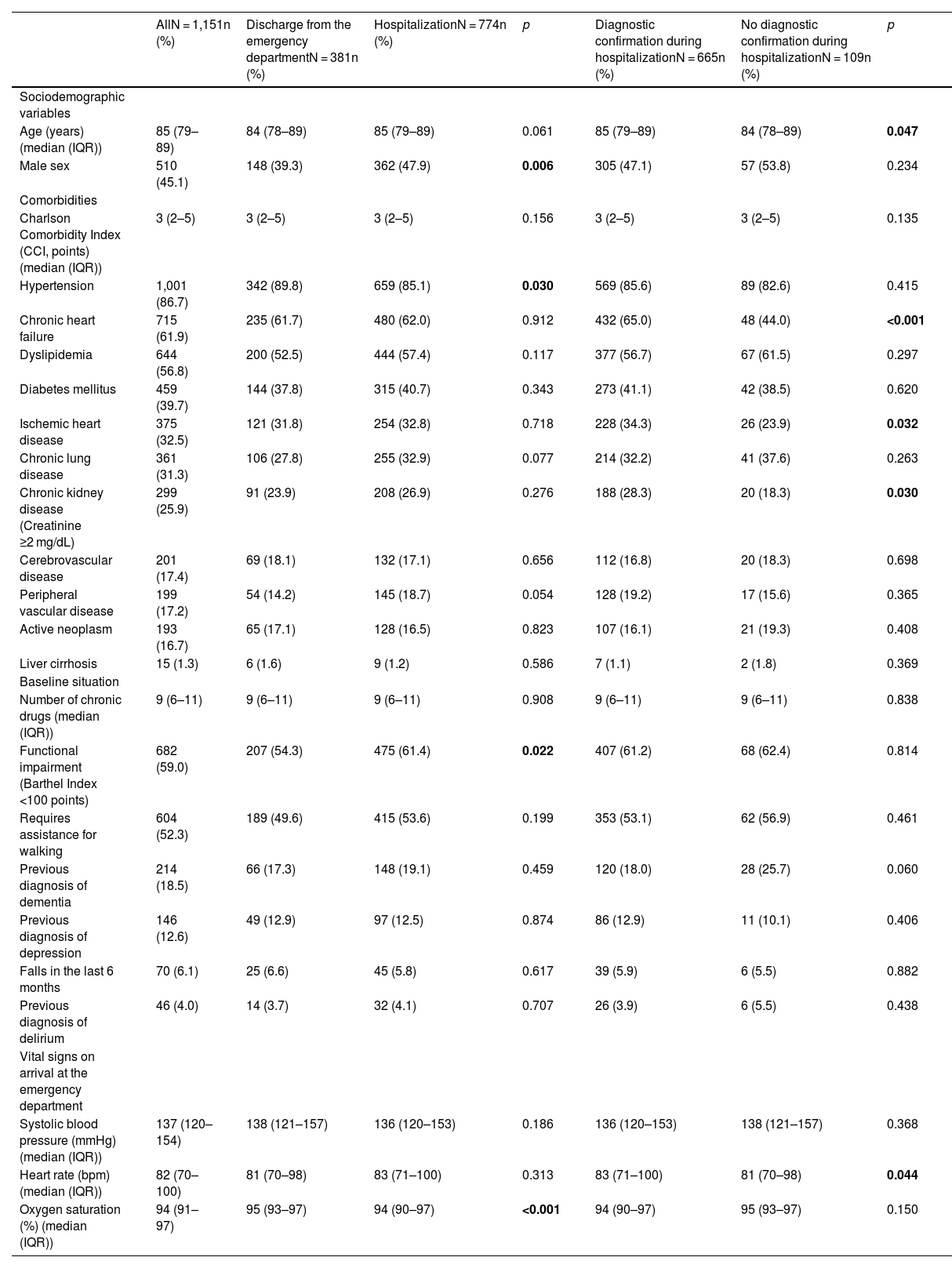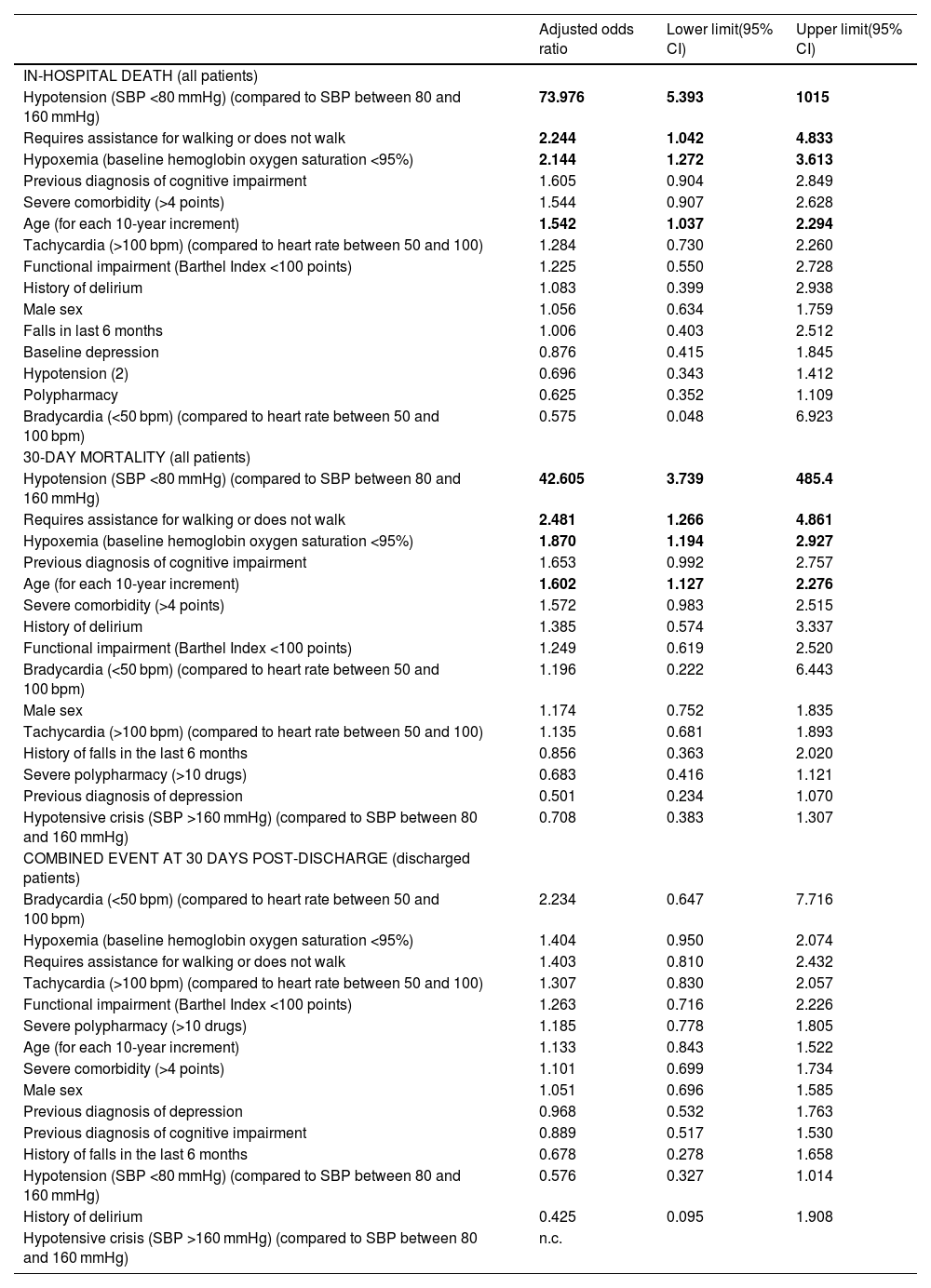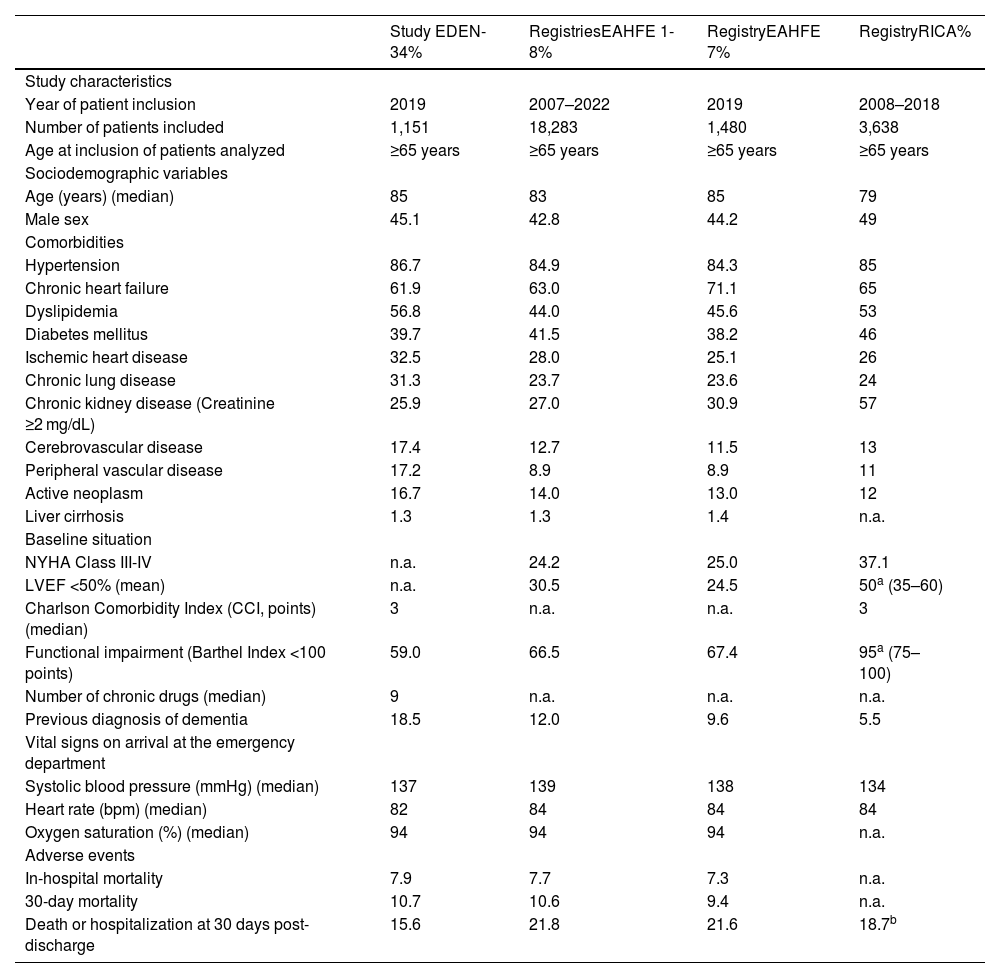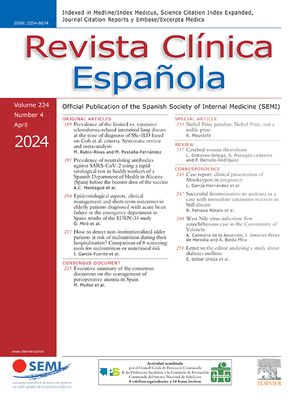To estimate the incidence of acute heart failure (AHF) diagnosis in elderly patients in emergency departments (ED), diagnostic confirmation in hospitalized patients, and short-term adverse events.
MethodsAll patients aged ≥65 years attended in 52 Spanish EDs during 1 week were included and those diagnosed with AHF were selected. In hospitalized patients, those diagnosed with AHF at discharge were collected. As adverse events, in-hospital and 30-day mortality, and combined adverse event (death or hospitalization) at 30 days post-discharge were collected. Adjusted odds ratios (OR) for association of demographic variables, baseline status and constants at ED arrival with mortality and 30-day post-discharge adverse event were calculated.
ResultsWe included 1,155 patients with AHF (annual incidence: 26.5 per 1000 inhabitants ≥65 years, 95% CI: 25.0–28.1). In 86% the diagnosis of AHF was known at discharge. Overall 30-day mortality was 10.7% and in-hospital mortality was 7.9%, and the combined event in 15.6%. In-hospital and 30-day mortality was associated with arterial hypotension (adjusted OR: 74.0, 95% CI: 5.39–1015. and 42.6, 3.74–485, respectively and hypoxemia (2.14, 1.27–3.61; and 1.87, 1.19–2.93) on arrival at the ED and requiring assistance with ambulation (2.24, 1.04–4.83; and 2.48, 1.27–4.86) and age (per 10-year increment; 1.54, 1.04–2.29; and 1.60, 1.13–2.28). The combined post-discharge adverse event was not associated with any characteristic.
ConclusionsAHF is a frequent diagnosis in elderly patients consulting in the ED. The functional impairment, age, hypotension and hypoxemia are the factors most associated with mortality.
Estimar la incidencia de diagnóstico de insuficiencia cardiaca aguda (ICA) en pacientes mayores en los servicios de urgencias (SU), la confirmación diagnóstica de la ICA en pacientes hospitalizados y los eventos adversos a corto plazo.
MétodoSe incluyeron todos los pacientes de ≥65 años atendidos en 52 SU españoles durante 1 semana y se seleccionaron los diagnosticados de ICA. En los hospitalizados, se recogieron los diagnosticados de ICA al alta. Como eventos adversos, se recogió la mortalidad intrahospitalaria y a 30 días, y evento adverso combinado (muerte u hospitalización) a 30 días posalta. Se calcularon las odds ratio (OR) ajustadas de las características demográficas, de estado basal y a la llegada al SU asociadas con mortalidad y evento adverso posalta a 30 días.
ResultadosSe incluyeron 1.155 pacientes con ICA (incidencia anual: 26,5 por 1000 habitantes ≥65 años, IC95%: 25,0-28,1). En el 86% el diagnóstico de ICA constaba al alta. La mortalidad global a 30 días fue del 10,7%, la intrahospitalaria del 7,9% y el evento combinado postalta un 15,6%. La mortalidad intrahospitalaria y a 30 días se asoció con hipotensión arterial (OR ajustada: 74.0, 95% CI: 5,39-1015.; y 42,6, 3,74-485, respectivamente) e hipoxemia (2,14, 1,27-3,61; y 1,87, 1,19-2,93) a la llegada a urgencias y con precisar ayuda en la deambulación (2,24, 1,04-4,83; y 2,48, 1,27-4,86) y la edad (por cada incremento de 10 años; 1,54, 1,04-2,29, y 1,60, 1,13-2,28).
ConclusionesLa ICA es un diagnóstico frecuente en los pacientes mayores que consultan en los SU. El deterioro funcional, la edad, la hipotensión e hipoxemia son los factores que más se asocian a mortalidad.
Article
Diríjase desde aquí a la web de la >>>FESEMI<<< e inicie sesión mediante el formulario que se encuentra en la barra superior, pulsando sobre el candado.

Una vez autentificado, en la misma web de FESEMI, en el menú superior, elija la opción deseada.

>>>FESEMI<<<

